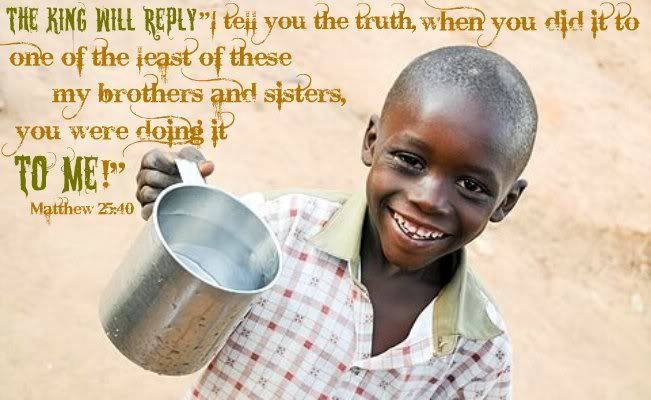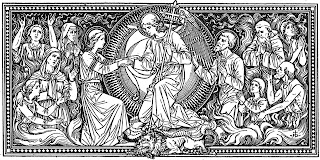First
Sunday of Advent
Is. 63:16b-17, 19b, 64:2-7; Ps. 80:2-3,15-16,18-19; 1
Cor. 1:3-9; M. 13:33-37
Armageddon, The Day after Tomorrow, 2012. These are just some of the “end of
the world” films that ended up in the blockbuster list. These films captured
the hearts and minds of many because they portrayed what may happen to this
world that will bring the present civilization to the end of its days. People
were entertained, yet deep within, fear was awakened. What if it will
happen?
For the
past few days until today, we have heard the many apocalyptic narratives of
Jesus. And if we understand them literally, we end up in fear and trembling.
For sure, no one finds consolation in the words of Jesus in our Gospel, “Be
alert! You do not know when the time will come!” Nobody wants an unexpected and
uncertain future!
However,
our Gospel today is not about making us fearful and afraid. It is about hope!
Yes, we do not know “when the time will come whether in the evening or at
midnight or at cockcrow or in the morning.” Yet we continue to be hopeful for
hope has a name—Jesus Christ.
In one
of his morning Masses at Casa Santa Marta, Pope Francis has this to say,
“Jesus, the hope, renews everything. He is the one who renews every wonderful
thing of Creation; He’s the reason of our hope. And this hope does not delude
because He is faithful. He can’t renounce Himself.” Hence, we do not fear when
the Lord will come because he will come not to seek revenge to the unfaithful
but to renew all things for the glory of his Father. We are also assured that
all will be well when the Lord comes because he is faithful, he is a God who
keeps his promises of love and mercy.
As
witnesses of Christian hope, it is our mission then, as Pope Francis puts it, “amid
so much darkness, we need to see the light of hope and to be men and women who
bring hope to others.” How then can we translate hope into action? Through
works of mercy and compassion especially to those who have given up hope and
have thrived in desperation, hope becomes alive. Hope becomes a making present
of Jesus once again on earth.
I have
a friend who was in Tacloban at the height of typhoon Yolanda. He saw with his
own eyes the devastation and heard people calling for help while they were being
swept away by the storm surge. After the storm, as he walked along the streets,
all that he could see were lifeless bodies hanging around trees and electric
posts and people begging for help and looking desperately for their loved ones.
Having gone through such a great catastrophe did not make him desperate.
Rather, such experience made him hold on to hope. And from that moment, he
became one of those who volunteered to look for help outside of his place.
Typhoon
Yolanda was not an “end of days” blockbuster film. It was a real event that
left a scar in our history as a nation. Many of us became afraid. What if it
will happen again? However, the Lord has assured us that we do not fear, for he
will come not to judge and condemn the world but to redeem it. All that we have
to do is to hold on to hope by becoming active witnesses of mercy and
compassion now and for ever. Amen!
P.S. This homily is published in the special issue of Boletin Ecclesiastico de Filipinas on the occasion of the Papal Visit to the Philippines




